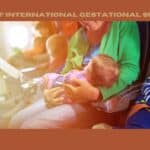Has the era of high tech embryo profiling arrived? I have been following the recent study published in the journal Human Reproduction. Researchers have combined the technology that allows them to screen embryos at the blastocyst stage with the DNA fingerprinting and microarray analysis technology in order to identify the viable blastocysts transferred into the mother. The search for the best embryo has always been part of the IVF equation with all the quality controls put in place in the lab.
So how is the research being conducted?
“The researchers tested the DNA of early in vitro fertilization embryos before implanting them into the womb, and then compared the results with the DNA of the healthy babies that were born, and found a cluster of genes that could be used to establish which embryos are likely to make it to full term.”
And why is this research touted as progress?
“The idea is that by using objective, measurable criteria rather than the current more subjective observations such as looking at the morphology of the blastocysts, the ability to predict which embryos are viable will improve to such an extent that IVF clinicians will be able to confidently implant single embryos without reducing pregnancy rates.”
Current methods of embryo testing and embryo grading occur daily in IVF clinics and are just part of the routine. I’ve always criticized embryo grading for being subjective, harmful and dangerous to the early embryo as well as just not a good indicator of the future health of the baby. We’re in dangerous waters here.
The timeline keeps getting moved back further and further in human development in our insatiable quest for the perfect people. We’ve become a people with zero tolerance with anything less than perfect.
Author Profile

- Jennifer Lahl, MA, BSN, RN, is founder and president of The Center for Bioethics and Culture Network. Lahl couples her 25 years of experience as a pediatric critical care nurse, a hospital administrator, and a senior-level nursing manager with a deep passion to speak for those who have no voice. Lahl’s writings have appeared in various publications including Cambridge University Press, the San Francisco Chronicle, the Dallas Morning News, and the American Journal of Bioethics. As a field expert, she is routinely interviewed on radio and television including ABC, CBS, PBS, and NPR. She is also called upon to speak alongside lawmakers and members of the scientific community, even being invited to speak to members of the European Parliament in Brussels to address issues of egg trafficking; she has three times addressed the United Nations during the Commission on the Status of Women on egg and womb trafficking.
Latest entries
 infertilityApril 23, 2024The Rise of International Gestational Surrogacy in the U.S.
infertilityApril 23, 2024The Rise of International Gestational Surrogacy in the U.S. Assisted Reproductive TechnologyApril 16, 2024Founder Jennifer Lahl’s Speech on Surrogacy to the Casablanca Declaration
Assisted Reproductive TechnologyApril 16, 2024Founder Jennifer Lahl’s Speech on Surrogacy to the Casablanca Declaration #BigFertilityFebruary 27, 2024No, Alabama Didn’t Ban IVF
#BigFertilityFebruary 27, 2024No, Alabama Didn’t Ban IVF ArticleSeptember 25, 2023The Little Engine That Could
ArticleSeptember 25, 2023The Little Engine That Could

